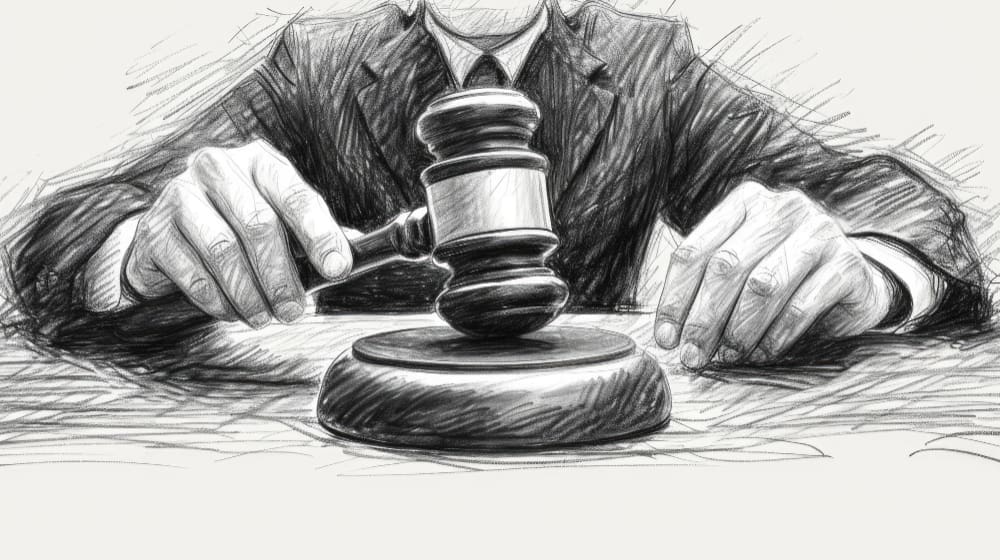A federal judge has mandated that the White House must reinstate The Associated Press’ full access to cover presidential events, underscoring that the government cannot penalize the news organization for its editorial content. U.S. District Judge Trevor N. McFadden, appointed by President Donald Trump, stated that the government cannot retaliate against the AP for choosing not to adhere to the president’s executive order to rename the Gulf of Mexico. This decision marks a significant triumph for the AP amid heightened tensions between the White House and the press.
Judge McFadden emphasized, “Under the First Amendment, if the Government opens its doors to some journalists—be it to the Oval Office, the East Room, or elsewhere—it cannot then shut those doors to other journalists because of their viewpoints. The Constitution requires no less.” The White House’s immediate response to McFadden’s ruling remains uncertain, as the judge has paused the enforcement of his order for a week, allowing the government time to respond or appeal.
Since February 11, the AP has been excluded from the select group of journalists allowed to cover President Trump in the Oval Office or aboard Air Force One, with limited access to events in the East Room. AP spokeswoman Lauren Easton stated, “We are gratified by the court’s decision. Today’s ruling affirms the fundamental right of the press and public to speak freely without government retaliation. This is a freedom guaranteed for all Americans in the U.S. Constitution.” White House press secretary Karoline Leavitt, named in the lawsuit, did not immediately provide a comment.
The news organization requested McFadden to declare that Trump’s actions violated the AP’s constitutional right to free speech due to a disagreement with its journalists’ language. McFadden previously denied AP’s request for an injunction to reverse these changes. Traditionally, due to its wide reach, the AP has been included in “pools” for coverage of key presidential events.
McFadden clarified that his ruling does not restore permanent access for the AP to events in the Oval Office, the East Room, or other media venues. “The Court does not order the government to grant the AP permanent access to the Oval Office, the East Room, or any other media event,” he wrote. He added that while the AP is not entitled to automatic, permanent press pool access, it also cannot be treated less favorably than comparable wire services.
The judge asserted that his decision does not restrict government officials from selecting which outlets to grant interviews to, or from choosing which journalists’ questions to address during press conferences. Though there was little debate at the March 27 court hearing regarding Trump’s motive behind restricting the AP’s access—the president had openly acknowledged it—the administration maintains that it is the White House’s prerogative to decide who may question the president and when.
Since this contention began, the White House has made efforts to control which journalists cover smaller events and where they sit during briefings, citing a need to better reflect changes in media consumption. “In short, new media has benefited at AP’s expense under the new management,” McFadden wrote. “Little else has changed.”
The AP stands by its usage of “Gulf of Mexico,” a term recognized for centuries, while also noting Trump’s renaming to “Gulf of America.” Different outlets have adopted varied approaches, with some opting for simply “the Gulf.” Julie Pace, the AP’s executive editor, articulated in a Wall Street Journal op-ed that the lawsuit transcends a mere name change. “For anyone who thinks The Associated Press’ lawsuit against President Trump’s White House is about the name of a body of water, think bigger,” she wrote. “It’s really about whether the government can control what you say.” President Trump has dismissed the AP, founded in 1846, labeling them as “radical left lunatics” and asserting, “we’re going to keep them out until such time as they agree it’s the Gulf of America.”
Beyond the Surface
- The ruling reinforces the importance of press freedom, emphasizing that government cannot silence dissenting voices, which may resonate across news outlets globally.
- Citizens gain assurance that the media can provide diverse perspectives without fear of governmental reprisal, bolstering public access to unbiased information.
- Media organizations might view this as a precedent, strengthening their resolve to challenge any governmental restrictions on journalistic activities.
- The decision could influence future interactions between the press and the government, potentially leading to a more transparent administration.
- For local communities, the ruling highlights the role of journalism in holding power to account, possibly invigorating grassroots reporting efforts.
- On a broader scale, the ruling could enhance international perceptions of the U.S. commitment to freedom of speech, affecting diplomatic relations and global press standards.














